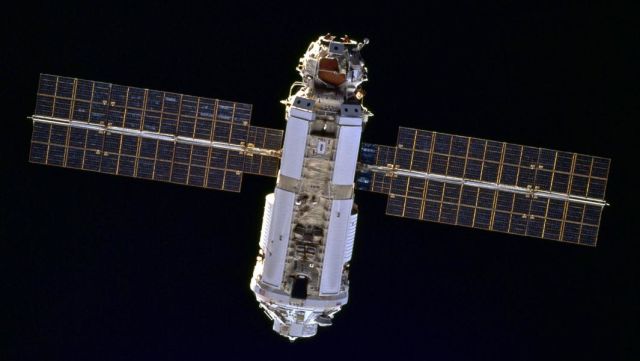Even if there are some cracks in the Zarya module, you can fly for another 20 years
Moscow. August 30. INTERFAX-The executive director of Roscosmos for manned space programs, Sergey Krikalev, told Interfax that he had no data on the presence of non-penetrating cracks in the Russian Zarya module on the International Space Station (ISS).
"I don't have such information, we continue to work," he said.
So he commented on the information that appeared on Monday about the presence of non-penetrating cracks in the Russian Zarya module on the ISS.
"Even if there are non-penetrating cracks, in this case, you can fly and continue working for another 20 years," Krikalev said.
According to him, it is possible that "there were some non-penetrating cracks right from the very beginning, when metal is rolled".
In August last year, it was reported that an air leak was detected on the ISS. The station crew managed to locate it in the transition chamber of the Zvezda module. In October 2020, the astronauts were able to detect the first crack about 4 cm in size and seal it with temporary means. After that, the rate of pressure drop on the ISS decreased, but the leak persisted.
On February 17, a powerful microscope was delivered to the station by the Progress MS-16 space truck to search for other leak sites. The truck also delivered materials for sealing cracks.
In March, the crew completed repair and restoration work in the module, covering two cracks on the ISS with sealant. At the same time, a later check of the tightness of the compartment showed that the pressure there continues to fall.
In April, Krikalev told Interfax that the state corporation has not yet decided on the timing of the final elimination of air leaks at the station.
In July, the station crew reported during negotiations that the pressure in the isolated chamber of the module had decreased to 154 mm of mercury. Roscosmos reported that the pressure drop is predictable, and the crew maintains it at about 200 mm Hg.
In October 2020, flight engineer of the Soyuz MS-16 manned spacecraft Ivan Wagner, in connection with an air leak on the ISS due to a crack that appeared on the station, said that one of the possible reasons for the formation of a crack is the long 20-year period of operation of the ISS.
The head of Roscosmos, Dmitry Rogozin, reported that about 80% of the equipment of the Russian segment of the ISS has exhausted its resource and the cost of maintaining it after 2025 will be comparable to the cost of creating a new station.
In October 2020, the head of flights of the Russian segment of the ISS, Vladimir Solovyov, said that the corporation's specialists predict "an avalanche-like failure of numerous elements on board the ISS" after 2025. According to him, due to the increased costs, experts consider it necessary to "review the terms of further participation in the program and focus on the implementation of orbital station programs."
In July, the Scientific and Technical Council of Roscosmos reported that the ISS is scheduled to be completed by 2028, by which time the new station should be operational.

